Creating a Good Research Question
Successful translation of research begins with a strong question. How do you get started? How do good research questions evolve? And where do you find inspiration to generate good questions in the first place? It’s helpful to understand existing frameworks, guidelines, and standards, as well as hear from researchers who utilize these strategies in their own work.
In the fall and winter of 2020, Naomi Fisher, MD, conducted 10 interviews with clinical and translational researchers at Harvard University and affiliated academic healthcare centers, with the purpose of capturing their experiences developing good research questions. The researchers featured in this project represent various specialties, drawn from every stage of their careers. Below you will find clips from their interviews and additional resources that highlight how to get started, as well as helpful frameworks and factors to consider. Additionally, visit the Advice & Growth section to hear candid advice and explore the Process in Practice section to hear how researchers have applied these recommendations to their published research.
- Naomi Fisher, MD, is associate professor of medicine at Harvard Medical School (HMS), and clinical staff at Brigham and Women’s Hospital (BWH). Fisher is founder and director of Hypertension Services and the Hypertension Specialty Clinic at the BWH, where she is a renowned endocrinologist.
- Christopher Gibbons, MD, is associate professor of neurology at HMS, and clinical staff at Beth Israel Deaconess Medical Center (BIDMC) and Joslin Diabetes Center. Gibbons’ research focus is on peripheral and autonomic neuropathies.
- Clare Tempany-Afdhal, MD, is professor of radiology at HMS and the Ferenc Jolesz Chair of Research, Radiology at BWH. Her major areas of research are MR imaging of the pelvis and image- guided therapy.
- David Sykes, MD, PhD, is assistant professor of medicine at Massachusetts General Hospital (MGH), he is also principal investigator at the Sykes Lab at MGH. His special interest area is rare hematologic conditions.
- Elliot Israel, MD, is professor of medicine at HMS, director of the Respiratory Therapy Department, the director of clinical research in the Pulmonary and Critical Care Medical Division and associate physician at BWH. Israel’s research interests include therapeutic interventions to alter asthmatic airway hyperactivity and the role of arachidonic acid metabolites in airway narrowing.
- Jonathan Williams, MD, MMSc, is assistant professor of medicine at HMS, and associate physician at BWH. He focuses on endocrinology, specifically unravelling the intricate relationship between genetics and environment with respect to susceptibility to cardiometabolic disease.
- Junichi Tokuda, PhD, is associate professor of radiology at HMS, and is a research scientist at the Department of Radiology, BWH. Tokuda is particularly interested in technologies to support image-guided “closed-loop” interventions. He also serves as a principal investigator leading several projects funded by the National Institutes of Health and industry.
- Osama Rahma, MD, is assistant professor of medicine at HMS and clinical staff member in medical oncology at Dana-Farber Cancer Institute (DFCI). Rhama is currently a principal investigator at the Center for Immuno-Oncology and Gastroenterology Cancer Center at DFCI. His research focus is on drug development of combinational immune therapeutics.
- Sharmila Dorbala, MD, MPH, is professor of radiology at HMS and clinical staff at BWH in cardiovascular medicine and radiology. She is also the president of the American Society of Nuclear Medicine. Dorbala’s specialty is using nuclear medicine for cardiovascular discoveries.
- Subha Ramani, PhD, MBBS, MMed, is associate professor of medicine at HMS, as well as associate physician in the Division of General Internal Medicine and Primary Care at BWH. Ramani’s scholarly interests focus on innovative approaches to teaching, learning and assessment of clinical trainees, faculty development in teaching, and qualitative research methods in medical education.
- Ursula Kaiser, MD, is professor at HMS and chief of the Division of Endocrinology, Diabetes and Hypertension, and senior physician at BWH. Kaiser’s research focuses on understanding the molecular mechanisms by which pulsatile gonadotropin-releasing hormone regulates the expression of luteinizing hormone and follicle-stimulating hormone genes.
Insights on Creating a Good Research Question
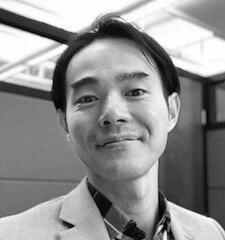
Junichi Tokuda, PhD, focuses on how to start successfully, and divulges the unique approach he has as a basic scientist when developing a good research question.
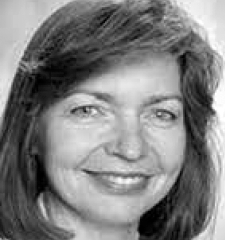
Ursula Kaiser, MD, encourages drawing on an already established interest in your subject matter to showcase clinical background and expertise.
Start Successfully: Build the Foundation of a Good Research Question
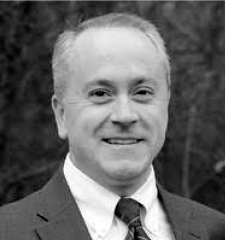 Jonathan Williams, MD, MMSc, emphasizes the value of trust and leaning on mentors when embarking on a new project. Play Jonathan Williams video
Jonathan Williams, MD, MMSc, emphasizes the value of trust and leaning on mentors when embarking on a new project. Play Jonathan Williams video
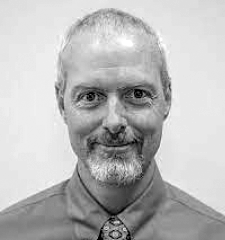 Chris Gibbons, MD, addresses his first step inquiring, “Has this been done before?”
Chris Gibbons, MD, addresses his first step inquiring, “Has this been done before?”
Play Chris Gibbons video
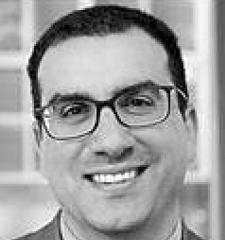 Osama Rahma, MD, explains how conviction is key when considering a topic. Play Osama Rahma video
Osama Rahma, MD, explains how conviction is key when considering a topic. Play Osama Rahma video
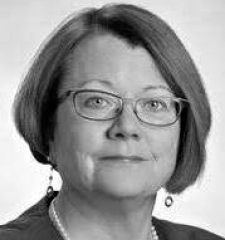 Clare Tempany-Afdhal, MD, recommends harnessing inner strengths and interests, and using them wisely. Play Clare Tempany-Afdhal video
Clare Tempany-Afdhal, MD, recommends harnessing inner strengths and interests, and using them wisely. Play Clare Tempany-Afdhal video
Start Successfully Resources
Ideation in Device Development: Finding Clinical Need Josh Tolkoff, MS
A lecture explaining the critical importance of identifying a compelling clinical need before embarking on a research project. Play Ideation in Device Development video.
Radical Innovation Jeff Karp, PhD
This ThinkResearch podcast episode focuses on one researcher’s approach using radical simplicity to break down big problems and questions. Play Radical Innovation.
Using Healthcare Data: How can Researchers Come up with Interesting Questions? Anupam Jena, MD, PhD
Another ThinkResearch podcast episode addresses how to discover good research questions by using a backward design approach which involves analyzing big data and allowing the research question to unfold from findings. Play Using Healthcare Data.
Important Factors: Consider Feasibility and Novelty
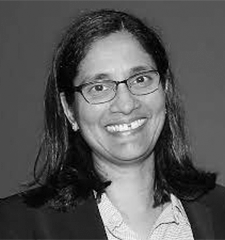 Sharmila Dorbala, MD, MPH, talks about how the questions become “a research umbrella.”
Sharmila Dorbala, MD, MPH, talks about how the questions become “a research umbrella.”
Play Sharmila Dorbala video
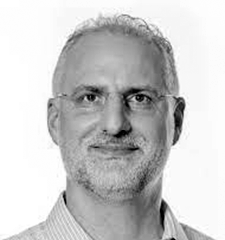 David Sykes, MD, PhD, describes why feasibility, impact, and commitment are all crucial.
David Sykes, MD, PhD, describes why feasibility, impact, and commitment are all crucial.
Play David Sykes video
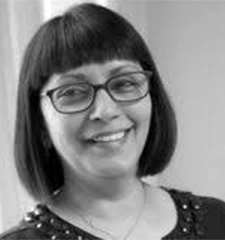 Subha Ramani, PhD, MBBS, MMed, explains why it’s important to consider stakeholders.
Subha Ramani, PhD, MBBS, MMed, explains why it’s important to consider stakeholders.
Play Subha Ramani video
Refining Your Research Question

Clare Tempany-Afdhal, MD, highlights how finding your niche subject matter can catapult your research career.
Play video of Clare Tempany-Afdhal
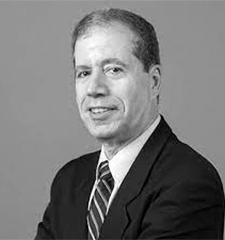
Elliot Israel, MD, explains the importance of embracing the resources and networks close by to elevate your project.
Frameworks and Structure: Evaluate Research Questions Using Tools and Techniques
 Ursula Kaiser, MD, encourages finding the right checklist and accruing expertise when evaluating your question. Play video of Ursula Kaiser
Ursula Kaiser, MD, encourages finding the right checklist and accruing expertise when evaluating your question. Play video of Ursula Kaiser
 Jonathan Williams, MD, MMSc, breaks down the FINER technique. Play video of Jonathan Williams
Jonathan Williams, MD, MMSc, breaks down the FINER technique. Play video of Jonathan Williams
 Subha Ramani, PhD, MBBS, MMed, shares her unique approach picking methodology based on her curiosity and comfort level. Play video of Subha Ramani
Subha Ramani, PhD, MBBS, MMed, shares her unique approach picking methodology based on her curiosity and comfort level. Play video of Subha Ramani
Frameworks and Structure Resources
Designing Clinical Research Hulley et al.
A comprehensive and practical guide to clinical research, including the FINER framework for evaluating research questions. Learn more about the book.
Translational Medicine Library Guide Queens University Library
An introduction to popular frameworks for research questions, including FINER and PICO. Review translational medicine guide.
Asking a Good T3/T4 Question Niteesh K. Choudhry, MD, PhD
This video explains the PICO framework in practice as participants in a workshop propose research questions that compare interventions. Play Asking a Good T3/T4 Question video
Introduction to Designing & Conducting Mixed Methods Research
An online course that provides a deeper dive into mixed methods’ research questions and methodologies. Learn more about the course
Network and Support: Find the Collaborators and Stakeholders to Help Evaluate Research Questions
 Chris Gibbons, MD, values brainstorming sessions as early in the process as possible to help identify blind spots. Play video of Chris Gibbons
Chris Gibbons, MD, values brainstorming sessions as early in the process as possible to help identify blind spots. Play video of Chris Gibbons
 David Sykes, MD, PhD, welcomes patient advocates when considering a good research question.
David Sykes, MD, PhD, welcomes patient advocates when considering a good research question.
Play video of David Sykes
 Osama Rahma, MD, talks about the surprising importance of leaning on competitors.
Osama Rahma, MD, talks about the surprising importance of leaning on competitors.
Play video of Osama Rahma
Network & Support Resource
Bench-to-bedside, Bedside-to-bench Christopher Gibbons, MD
In this lecture, Gibbons shares his experience of bringing research from bench to bedside, and from bedside to bench. His talk highlights the formation and evolution of research questions based on clinical need. Play Bench-to-bedside.

